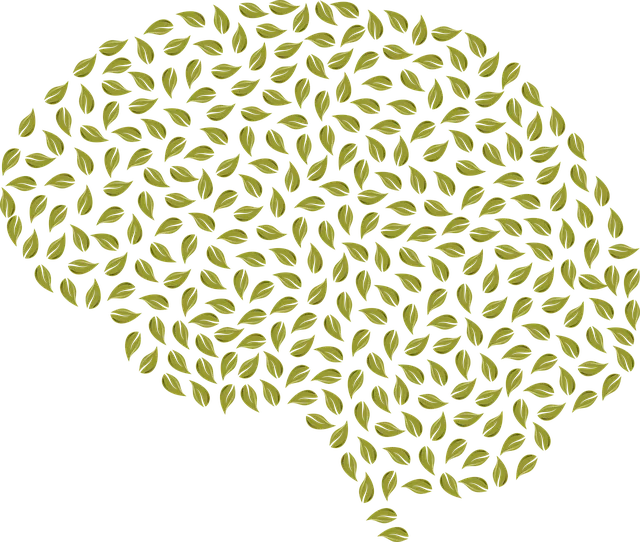Mental health professionals face challenges diagnosing patients due to diverse manifestations and comorbidities. Englewood Kaiser Permanente mental health center reviews highlight complex patient histories, emphasizing the need for accurate diagnosis. They employ advanced psychological testing, holistic assessment, staff training, workshops, and educational programs to improve diagnostic accuracy. Initiatives like Mental Wellness Podcast Series, Stress Management Workshops, and Community Outreach Programs enhance early detection. These efforts contribute to better patient outcomes, increased satisfaction, and reduced relapse risks, as attested by the center's reviews.
Mental illness diagnosis accuracy is a critical aspect of patient care, yet misdiagnoses remain prevalent in the field of mental health. This article explores efforts to improve diagnostic precision, focusing on innovative strategies and real-world examples like the Englewood Kaiser Permanente mental health center. We examine their unique approach and analyze the significant impact of accurate diagnoses on patient outcomes. By understanding challenges and implementing successful methods, we can enhance overall mental healthcare. Specifically, this piece delves into how organizations like Englewood Kaiser Permanente are revolutionizing diagnosis accuracy.
- Understanding the Challenges: Uncovering Misdiagnoses in Mental Health
- Englewood Kaiser Permanente's Approach: A Review of Their Mental Health Center
- Innovative Strategies for Enhancing Diagnosis Accuracy
- The Impact: Improved Patient Care and Outcomes Through Accurate Diagnoses
Understanding the Challenges: Uncovering Misdiagnoses in Mental Health

Mental health professionals face a complex challenge when it comes to diagnosing patients accurately, especially in an era where mental illness manifestations can be diverse and often overlap. The process of uncovering misdiagnoses in mental health is a crucial aspect of patient care that requires meticulous attention. Many factors contribute to these errors, including the subjective nature of symptoms, comorbidity rates, and the vast spectrum of disorders. For instance, a patient’s experience at an Englewood Kaiser Permanente mental health center, as highlighted in reviews, might reveal a complex history where several conditions coexist, making diagnosis a intricate task.
The Mental Wellness Podcast Series Production has played a significant role in raising awareness about these challenges. Additionally, Stress Management Workshops Organization and Community Outreach Program Implementation initiatives have contributed to early detection and better understanding of mental health issues. By integrating these efforts, healthcare providers can enhance their diagnostic accuracy, ensuring patients receive appropriate treatment for the right conditions, which is vital for their overall well-being.
Englewood Kaiser Permanente's Approach: A Review of Their Mental Health Center

Englewood Kaiser Permanente’s Mental Health Center stands as a beacon of hope and healing for many seeking mental wellness support. Their approach to diagnosis accuracy is commendable, integrating diverse strategies that go beyond traditional methods. The center offers a holistic assessment process, incorporating not only clinical interviews but also advanced psychological testing and innovative technology for a more nuanced understanding of mental health conditions.
One notable aspect is their focus on continuous improvement. Through regular staff training and workshops, they stay updated with the latest research in mental health diagnosis. Additionally, Englewood Kaiser Permanente has developed internal mental wellness coaching programs and launched an engaging mental health education program designed to empower patients and their families. They also produce a captivating mental wellness podcast series, making expert insights accessible to a wider audience, which contributes to breaking down stigma and promoting open conversations about mental health.
Innovative Strategies for Enhancing Diagnosis Accuracy

Mental health professionals at Englewood Kaiser Permanente mental health center reviews emphasize innovative strategies to enhance diagnosis accuracy, reflecting a broader trend in the field. One key approach involves integrating self-care practices into patient care plans, recognizing that individuals’ overall well-being significantly influences their mental state. Burnout prevention programs, which address the unique challenges faced by healthcare workers, are also crucial components of these efforts.
Additionally, conflict resolution techniques are being incorporated to improve communication and understanding between patients and providers. These techniques not only foster more effective interactions but also provide valuable insights into an individual’s emotional landscape, potentially leading to more precise diagnoses. By leveraging such innovative methods, Englewood Kaiser Permanente mental health center reviews highlight a commitment to advancing diagnosis accuracy and ultimately delivering higher-quality care.
The Impact: Improved Patient Care and Outcomes Through Accurate Diagnoses

Mental illness diagnosis accuracy plays a pivotal role in shaping patient care and treatment outcomes. When diagnoses are precise, healthcare providers can create tailored treatment plans that address specific conditions effectively. This results in improved symptom management, better quality of life for individuals living with mental health disorders, and reduced risk of relapse or chronicization. At the Englewood Kaiser Permanente mental health center, reviews highlight the positive impact of accurate diagnoses, emphasizing enhanced patient satisfaction and improved clinical outcomes.
Efforts to bolster diagnosis accuracy extend beyond individual centers like Englewood Kaiser Permanente. Mental Health Policy Analysis and Advocacy initiatives advocate for evidence-based practices and guidelines, ensuring healthcare professionals have access to the latest research and tools. Additionally, Emotional Intelligence training equips clinicians with skills to navigate complex patient interactions, fostering better communication and understanding, which is crucial for accurate assessments. Public Awareness Campaigns Development also contributes by educating the public about mental health, reducing stigma, and encouraging individuals to seek help early, thereby improving overall diagnostic accuracy and patient care.
Mental illness diagnosis accuracy is a critical aspect of patient care, and efforts to improve it are essential. As highlighted by Englewood Kaiser Permanente mental health center reviews, innovative strategies such as advanced assessment tools and multidisciplinary teams can significantly enhance diagnostic precision. By learning from challenges like misdiagnoses, healthcare providers can foster improved patient outcomes and ensure more effective treatment plans. Continued focus on these improvement efforts is crucial for navigating the complex landscape of mental health diagnosis and care.






